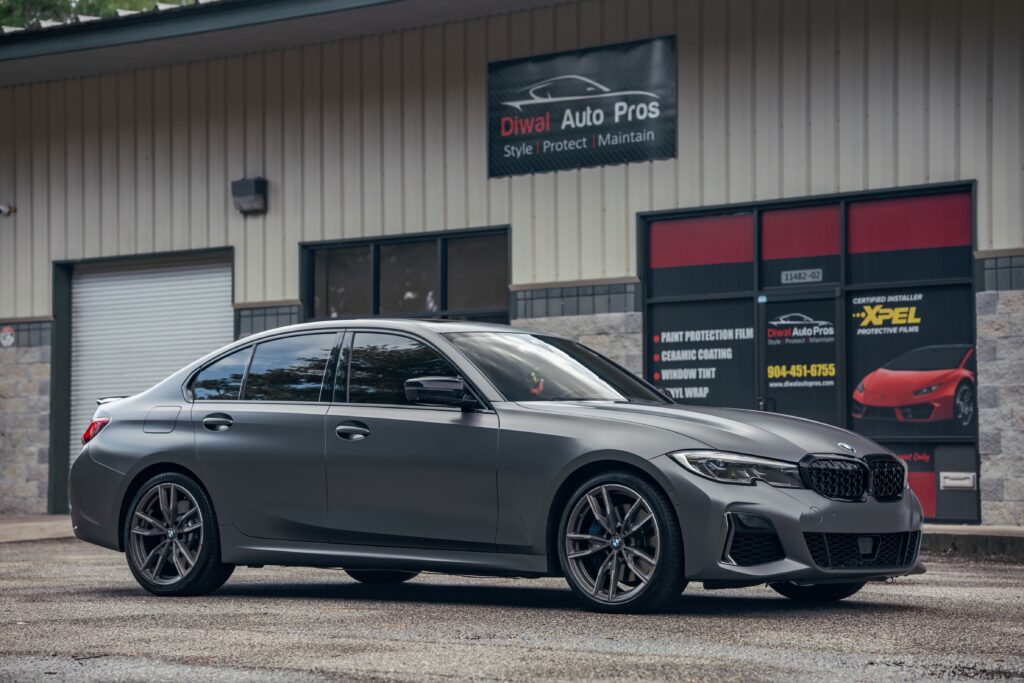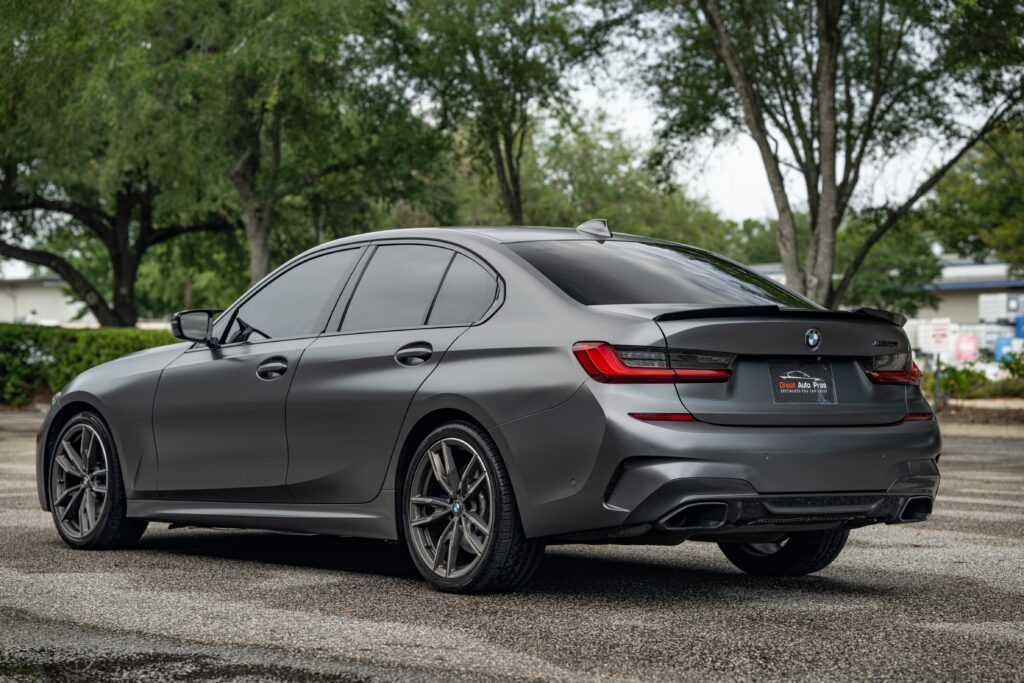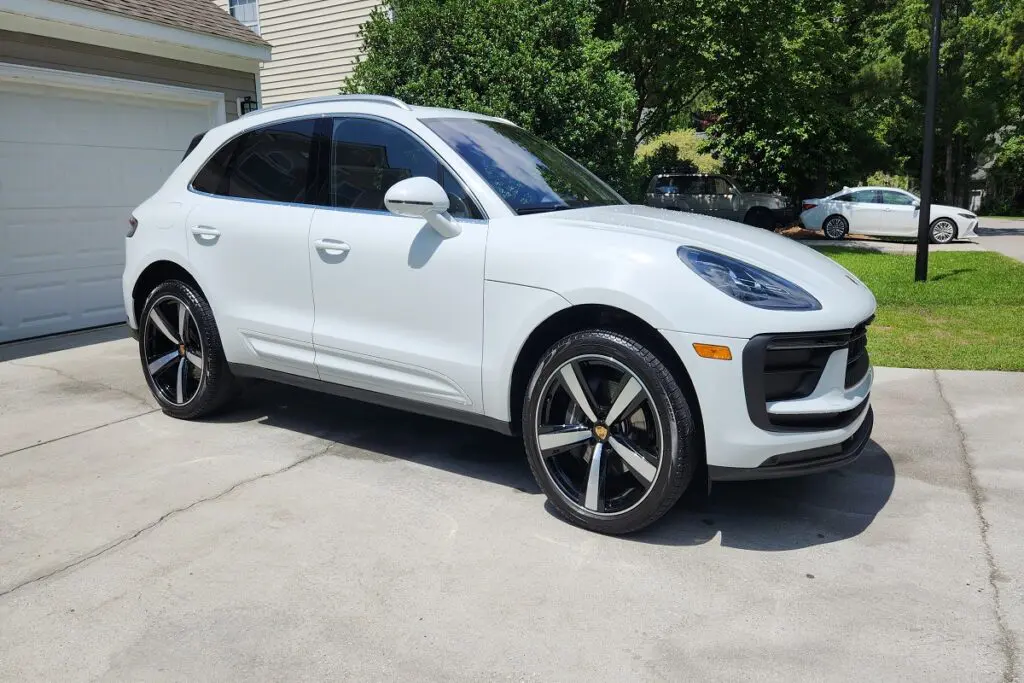For car enthusiasts, protecting that showroom shine is an ongoing battle. Paint protection film (PPF), a revolutionary adhesive film applied to your car’s exterior, has become a popular weapon in this fight. But a crucial question lingers: How long does PPF last?
Understanding PPF’s lifespan is vital for informed decision-making. This guide from Pure PPF delves deep, exploring factors affecting PPF longevity and offering tips to maximize its protective power. Let’s check it out!
Outstanding benefits of PPF
Before diving into longevity, let’s explore what PPF is and the magic it brings:

- A transparent shield: Made from tough polyurethane, PPF creates an invisible barrier on your car’s paint. It acts like a superhero’s forcefield, deflecting scratches, chips, and stains.
- Self-healing properties: Certain PPF films boast self-healing properties. Minor scratches and swirls disappear under heat application, keeping your paint looking flawless for longer.
- Hydrophobic protection: Many PPF films are hydrophobic, repelling water and contaminants. This translates to easier cleaning and a dazzling shine.
- UV protection: High-quality PPF shields your paint from the sun’s harmful UV rays, preventing fading and discoloration.
Factors affecting PPF lifespan
Now, let’s unveil the big question: How long can you expect PPF to last? The answer, unfortunately, isn’t a simple one-size-fits-all. Several factors influence PPF’s lifespan:
- Film quality: The quality of the PPF itself plays a significant role. Higher-grade films, often used by reputable installers, are formulated to last longer and offer better protection compared to cheaper alternatives.
- Environmental exposure: Where you live and park your car significantly impacts PPF longevity. Harsh sunlight, extreme temperatures, and constant exposure to road chemicals can accelerate PPF degradation.
- Care and maintenance: Proper car care practices significantly extend PPF life. Regular washing with appropriate products and avoiding harsh chemicals helps maintain the film’s integrity.
- Application expertise: A skilled installer ensures proper adhesion and avoids potential lifting or peeling, which can shorten PPF lifespan.
How long does PPF last ?
Understanding the longevity of paint protection film (PPF) entails considering various factors that influence its lifespan. Here’s a detailed breakdown:
Optimal conditions (10+ Years)
For maximum longevity, imagine this ideal scenario: high-quality PPF is meticulously installed on a vehicle. This vehicle is then stored in a controlled environment and receives diligent maintenance. Under these circumstances, the PPF can potentially endure for over a decade.
Realistic expectations (5-7 Years):
For the majority of car owners, a lifespan of 5-7 years is more feasible. This duration takes into account the use of good quality film, adherence to proper care routines, and exposure to typical environmental conditions.
Suboptimal conditions (1-2 Years)
In less favorable scenarios involving low-quality PPF, improper installation practices, and neglect of essential car care routines, the lifespan of the film can plummet to as low as 1-2 years. These conditions significantly accelerate wear and diminish the protective capabilities of the film.

Extending the life of your PPF
Here are some tips to maximize the lifespan of your PPF investment:
- Regular washes with PPF-safe products: Maintain a regular washing routine using gentle, pH-balanced car wash products specifically formulated for PPF. Avoid harsh chemicals or abrasive sponges.
- Hand-washing is Best: While automatic car washes might seem convenient, they can harbor dirt and debris that can scratch the PPF. Opt for hand-washing whenever possible.
- Maintain a cool parking spot: Whenever possible, park your car in a shaded area or garage to minimize sun exposure and extreme heat, which can accelerate PPF degradation.
- Professional detailing: Treat your car to professional detailing periodically. Detailers can remove embedded contaminants and apply protective coatings to further enhance PPF longevity.
PPF vs. Ceramic Coating: Choosing the Right Shield
Both PPF and ceramic coating offer superior protection, but they cater to different needs. Here’s a quick comparison to help you decide:
- PPF: Ideal for those seeking ultimate scratch and chip protection. It’s thicker and provides a physical barrier.
- Ceramic Coating: Focuses on enhancing gloss, repelling water and contaminants, and offering chemical resistance. It’s thinner than PPF.

Premium PPF service for your car in Jacksonville, FL
We at Pureppf understand how important protecting your car’s beauty is in Jacksonville, FL ever-changing climate. That’s why we offer a premium paint protection film (PPF) service using only the highest quality films. Our certified technicians meticulously install the PPF, ensuring your car is shielded against scratches, chips, and UV rays. This keeps your car looking showroom-new for years to come.
Contact us today for a free quote and experience the difference a premium PPF service can make. Call us at +1 904-451-6755 or visit our shop conveniently located at 11482 Columbia Park Dr W Suite 2, Jacksonville, FL 32258. We look forward to serving you soon!
